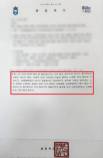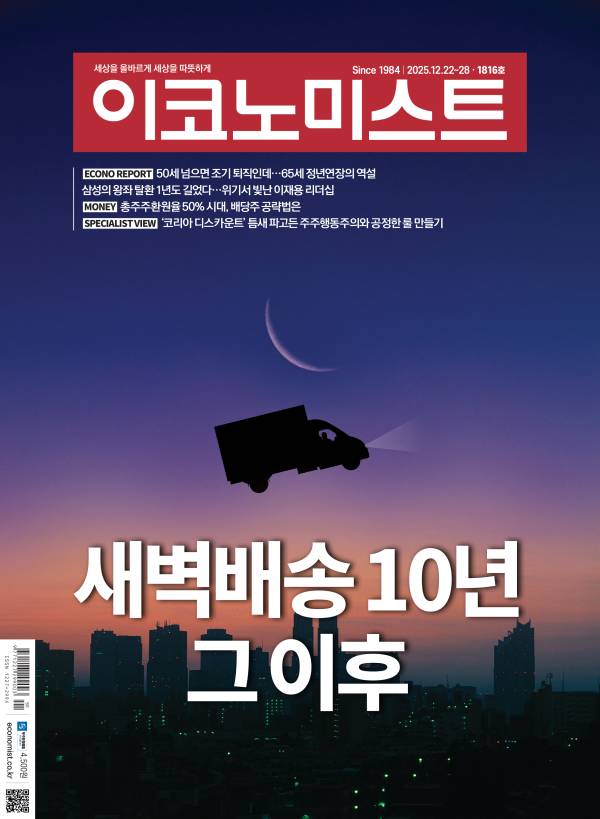- Rip This Book? Not Yet.
The Technologist Rip This Book? Not Yet. Could the publishing industry get napsterized? that was my first thought when I saw the marketing materials for the Atiz BookSnap, the first consumer device that enables you to "release the content" of your books by transforming the printed words on the page into digital files that can be read on computers and handheld e-readers. "It's not a scanner," proclaims a banner on the Atiz Web site. "It's a book ripper." Though ripping (trans-ferring content from an external medium to your computer) does not imply an act of piracy, I couldn't help but wonder whether this was a sign of
1.impending
2.apocalypse on Publishers' Row, a scenario that could end up with people file-sharing John Grisham's latest the way they do now with the newest Vampire Weekend tunes. Then I tested a BookSnap for myself. Short verdict: not a revolution. The device - an
3.ominous meter-high construction draped with a thick black darkroom-style shade - looks like a Goth puppet theater and weighs 20 kilograms. Under the shade is an angled cradle for a book and a glass
4.platen to hold down the pages during scanning. You turn the pages yourself. It costs $1,600, not including the two Canon digital cameras (about $500 each) necessary to capture the page images and send them to your computer, where software transforms the pictures into files that can be read on a screen or an e-book reader. It takes considerable
5.fiddling to get images set up properly. Supposedly, once you get started you can digitize 500 pages per hour, much faster and at higher quality than with flatbed scanners. I never got that far, but I imagine such a
6.feat would require considerable caffeination. Still, the very existence of a consumer book scanner is one of those early warnings of turbulence to come. In the mind of its inventor, Sarasin (Art) Booppanon, scanners will one day become commonplace appliances. Four years ago, Booppanon, 28, who is from Thailand, was a grad student at George Mason University when he got tired of making photocopies from books and tried to make his own technology to get pages into the computer. He hoped to create something that cost less than the machines used by Google and Microsoft to capture entire libraries for their search engines. (These can cost well over $100,000.) He first came up with a $10,000 device designed for commercial use, and then devised the stripped-down BookSnap. All but two of the 14 employees at Atiz are based in Bangkok, where the BookSnap is manufactured at a low cost. Not that publishers seem worried. "I'm not going to lose sleep over the BookSnap," says Pat Schroeder, CEO of the Association of American Publishers. Allan Adler, a lawyer who represents the AAP, has scrutinized the Atiz Web site and tentatively concludes that it focuses on legal uses. His
7.ire is reserved for Google's program to scan collections of libraries and use the contents in its search indexes; the AAP has filed suit against the Google program. But while the publishers worry about snippets of copyrighted works appearing in search engines, the real threat will emerge when some company produces the iPod of e-book readers, whether it's some evolution of Amazon's Kindle device or even an Apple production. (Ignore Steve Jobs's recent proclamation that e-readers make no sense because "people don't read anymore." He once said he didn't believe that people would watch video on tiny screens.) Eventually, electronic readers will become commonplace, creating a demand that won't be met by publisher-authorized releases of copy-protected digital books sold at similar prices to the bound volumes in stores. That's when the idea of ripping books might really catch on, presumably with cheaper, cooler scanners. Remember - Napster happened in a snap. 디지털 책 아직 이르다 출판업계에도 냅스터 바람이 불까(한때 음악업계를 휩쓸었던 냅스터의 음악 파일 무료 공유 서비스를 가리키는 말이다)? 아티즈 북스냅의 마케팅 자료를 보는 순간 떠오른 생각이었다. 아티즈 북스냅은 종이책을 컴퓨터나 전자책 단말기에서 볼 수 있도록 디지털 파일로 변환해 “콘텐트를 유포하는” 최초의 소비자 제품이다. “스캐너가 아니다.” 아티즈 웹사이트에는 이런 배너가 떠 있다. “책 변환장치(ripper)다.” 리핑(ripping, 외부 매체의 내용물을 컴퓨터 콘텐트로 변환한다는 뜻)이 저작권 침해를 암시하지는 않지만, 출판계를
1.엄습하는
2.대재앙의 전조가 아니냐는 의구심을 떨칠 수 없다. 존 그리샴의 신작 소설이 mp3 음악파일처럼 인터넷에 퍼지는 세상 말이다. 그래서 북스냅을 직접 이용해 봤다. 감상은? 혁신하고는 거리가 멀다. 1m 높이의 구조물에 두꺼운 검은 천을 암실처럼 둘러
3.공포감을 주는 물건이다. 마치 고스족 인형극 무대처럼 생겼다. 무게는 20㎏나 나간다. 장막 안에는 책을 펼쳐 놓을 수 있는 판이 있고 스캔하는 동안 책 페이지를 고정시킬
4.유리판이 있다. 페이지는 손으로 넘겨야 한다. 가격은 1600달러다. 책 내용을 찍어서 컴퓨터로 전송하는 두 대의 캐논 디지털 카메라 값은 포함되지 않았다(한 대에 약 500달러). 컴퓨터로 전송된 사진 파일은 소프트웨어를 통해 PC 화면이나 전자책 단말기에서 읽히는 파일로 변환된다. 이미지를 제대로 옮기려면 상당히
5.손이 많이 간다. 회사 측은 일단 세팅이 되면 한 시간에 500쪽을 옮길 수 있다고 소개한다. 일반 스캐너보다 훨씬 속도가 빠르고 화질도 좋다고 한다. 그 정도까지 해보진 못했지만 500장이나
6.성공하려면 수십 잔의 커피가 필요할 듯하다. 하지만 개인용 책 스캐너가 시판됐다는 자체가 격동의 미래를 예고하는 전조다. 북스냅을 개발한 사라신 (아트) 부파논은 책 스캐너가 언젠가는 일상용품이 되리라고 믿는다. 태국 출신의 부파논(28)은 4년 전 조지 메이슨 대학의 대학원생 시절 책을 복사하는 데 지쳐버린 나머지 직접 종이책을 컴퓨터로 옮기는 기술을 개발하기로 했다. 구글이나 마이크로소프트에서 도서관 단위로 소장 도서를 디지털화하는 스캐너보다 저렴한 기술을 개발하고자 했다(그런 스캐너는 10만 달러를 호가한다). 처음에 1만 개 정도를 상업적인 용도로 제조했다가 불필요한 기능은 빼고 북스냅을 만들었다. 현재 아티즈의 직원 14명 중 12명이 방콕에서 근무하면서 저비용으로 북스냅을 생산한다. 출판업자들은 별로 걱정하지 않는다. “북스냅 때문에 잠 못 이루진 않을 것 같다”고 미국출판자협회(AAP)의 CEO 팻 슈로더가 말했다. AAP의 변호사 앨런 애들러는 아티즈의 웹사이트를 살펴본 결과 합법적으로 운영하고 있다고 잠정 결론을 내렸다. 그보다는 도서관 소장 도서를 스캔해 검색 목록에 내용물을 올리는 구글의 서비스에
7.분개한다. AAP는 구글의 디지털 도서관 서비스를 상대로 소송을 제기했다. 출판업자들은 검색엔진에 저작물의 일부분이 뜨는 것을 걱정하지만 진짜 위협은 따로 있다. 누군가 ‘아이팟’ 같은 전자책 단말기 제품을 만들어낸다면? 이를테면 아마존의 단말기 ‘킨들’이 기능을 업그레이드하거나 애플이 직접 개발할 수도 있겠다. 스티브 잡스는 “사람들이 더 이상 책을 읽지 않기 때문에” 전자책 단말기를 개발할 이유가 없다고 최근 말했지만 무시해도 좋다. 그는 예전에도 사람들이 작은 액정 화면을 통해 동영상을 볼 리 없다고 말한 적이 있다. 언젠가는 전자책 단말기가 보편화될 것이고 출판사의 승인을 받아 종이책과 비슷한 가격에 판매하는 합법적인 디지털 도서만으로는 그 수요를 감당할 수 없게 된다. 그때가 되면 책 리핑이 정말로 주목 받을지 모른다. 아마 더 값싸고 디자인도 근사한 책 스캐너가 나올 것이다. 냅스터 열풍은 눈깜짝할 새 일어났다는 사실을 명심해야 한다.
■ NOTES
1.impending
2.apocalypse on Publishers' Row, a scenario that could end up with people file-sharing John Grisham's latest the way they do now with the newest Vampire Weekend tunes. Then I tested a BookSnap for myself. Short verdict: not a revolution. The device - an
3.ominous meter-high construction draped with a thick black darkroom-style shade - looks like a Goth puppet theater and weighs 20 kilograms. Under the shade is an angled cradle for a book and a glass
4.platen to hold down the pages during scanning. You turn the pages yourself. It costs $1,600, not including the two Canon digital cameras (about $500 each) necessary to capture the page images and send them to your computer, where software transforms the pictures into files that can be read on a screen or an e-book reader. It takes considerable
5.fiddling to get images set up properly. Supposedly, once you get started you can digitize 500 pages per hour, much faster and at higher quality than with flatbed scanners. I never got that far, but I imagine such a
6.feat would require considerable caffeination. Still, the very existence of a consumer book scanner is one of those early warnings of turbulence to come. In the mind of its inventor, Sarasin (Art) Booppanon, scanners will one day become commonplace appliances. Four years ago, Booppanon, 28, who is from Thailand, was a grad student at George Mason University when he got tired of making photocopies from books and tried to make his own technology to get pages into the computer. He hoped to create something that cost less than the machines used by Google and Microsoft to capture entire libraries for their search engines. (These can cost well over $100,000.) He first came up with a $10,000 device designed for commercial use, and then devised the stripped-down BookSnap. All but two of the 14 employees at Atiz are based in Bangkok, where the BookSnap is manufactured at a low cost. Not that publishers seem worried. "I'm not going to lose sleep over the BookSnap," says Pat Schroeder, CEO of the Association of American Publishers. Allan Adler, a lawyer who represents the AAP, has scrutinized the Atiz Web site and tentatively concludes that it focuses on legal uses. His
7.ire is reserved for Google's program to scan collections of libraries and use the contents in its search indexes; the AAP has filed suit against the Google program. But while the publishers worry about snippets of copyrighted works appearing in search engines, the real threat will emerge when some company produces the iPod of e-book readers, whether it's some evolution of Amazon's Kindle device or even an Apple production. (Ignore Steve Jobs's recent proclamation that e-readers make no sense because "people don't read anymore." He once said he didn't believe that people would watch video on tiny screens.) Eventually, electronic readers will become commonplace, creating a demand that won't be met by publisher-authorized releases of copy-protected digital books sold at similar prices to the bound volumes in stores. That's when the idea of ripping books might really catch on, presumably with cheaper, cooler scanners. Remember - Napster happened in a snap. 디지털 책 아직 이르다 출판업계에도 냅스터 바람이 불까(한때 음악업계를 휩쓸었던 냅스터의 음악 파일 무료 공유 서비스를 가리키는 말이다)? 아티즈 북스냅의 마케팅 자료를 보는 순간 떠오른 생각이었다. 아티즈 북스냅은 종이책을 컴퓨터나 전자책 단말기에서 볼 수 있도록 디지털 파일로 변환해 “콘텐트를 유포하는” 최초의 소비자 제품이다. “스캐너가 아니다.” 아티즈 웹사이트에는 이런 배너가 떠 있다. “책 변환장치(ripper)다.” 리핑(ripping, 외부 매체의 내용물을 컴퓨터 콘텐트로 변환한다는 뜻)이 저작권 침해를 암시하지는 않지만, 출판계를
1.엄습하는
2.대재앙의 전조가 아니냐는 의구심을 떨칠 수 없다. 존 그리샴의 신작 소설이 mp3 음악파일처럼 인터넷에 퍼지는 세상 말이다. 그래서 북스냅을 직접 이용해 봤다. 감상은? 혁신하고는 거리가 멀다. 1m 높이의 구조물에 두꺼운 검은 천을 암실처럼 둘러
3.공포감을 주는 물건이다. 마치 고스족 인형극 무대처럼 생겼다. 무게는 20㎏나 나간다. 장막 안에는 책을 펼쳐 놓을 수 있는 판이 있고 스캔하는 동안 책 페이지를 고정시킬
4.유리판이 있다. 페이지는 손으로 넘겨야 한다. 가격은 1600달러다. 책 내용을 찍어서 컴퓨터로 전송하는 두 대의 캐논 디지털 카메라 값은 포함되지 않았다(한 대에 약 500달러). 컴퓨터로 전송된 사진 파일은 소프트웨어를 통해 PC 화면이나 전자책 단말기에서 읽히는 파일로 변환된다. 이미지를 제대로 옮기려면 상당히
5.손이 많이 간다. 회사 측은 일단 세팅이 되면 한 시간에 500쪽을 옮길 수 있다고 소개한다. 일반 스캐너보다 훨씬 속도가 빠르고 화질도 좋다고 한다. 그 정도까지 해보진 못했지만 500장이나
6.성공하려면 수십 잔의 커피가 필요할 듯하다. 하지만 개인용 책 스캐너가 시판됐다는 자체가 격동의 미래를 예고하는 전조다. 북스냅을 개발한 사라신 (아트) 부파논은 책 스캐너가 언젠가는 일상용품이 되리라고 믿는다. 태국 출신의 부파논(28)은 4년 전 조지 메이슨 대학의 대학원생 시절 책을 복사하는 데 지쳐버린 나머지 직접 종이책을 컴퓨터로 옮기는 기술을 개발하기로 했다. 구글이나 마이크로소프트에서 도서관 단위로 소장 도서를 디지털화하는 스캐너보다 저렴한 기술을 개발하고자 했다(그런 스캐너는 10만 달러를 호가한다). 처음에 1만 개 정도를 상업적인 용도로 제조했다가 불필요한 기능은 빼고 북스냅을 만들었다. 현재 아티즈의 직원 14명 중 12명이 방콕에서 근무하면서 저비용으로 북스냅을 생산한다. 출판업자들은 별로 걱정하지 않는다. “북스냅 때문에 잠 못 이루진 않을 것 같다”고 미국출판자협회(AAP)의 CEO 팻 슈로더가 말했다. AAP의 변호사 앨런 애들러는 아티즈의 웹사이트를 살펴본 결과 합법적으로 운영하고 있다고 잠정 결론을 내렸다. 그보다는 도서관 소장 도서를 스캔해 검색 목록에 내용물을 올리는 구글의 서비스에
7.분개한다. AAP는 구글의 디지털 도서관 서비스를 상대로 소송을 제기했다. 출판업자들은 검색엔진에 저작물의 일부분이 뜨는 것을 걱정하지만 진짜 위협은 따로 있다. 누군가 ‘아이팟’ 같은 전자책 단말기 제품을 만들어낸다면? 이를테면 아마존의 단말기 ‘킨들’이 기능을 업그레이드하거나 애플이 직접 개발할 수도 있겠다. 스티브 잡스는 “사람들이 더 이상 책을 읽지 않기 때문에” 전자책 단말기를 개발할 이유가 없다고 최근 말했지만 무시해도 좋다. 그는 예전에도 사람들이 작은 액정 화면을 통해 동영상을 볼 리 없다고 말한 적이 있다. 언젠가는 전자책 단말기가 보편화될 것이고 출판사의 승인을 받아 종이책과 비슷한 가격에 판매하는 합법적인 디지털 도서만으로는 그 수요를 감당할 수 없게 된다. 그때가 되면 책 리핑이 정말로 주목 받을지 모른다. 아마 더 값싸고 디자인도 근사한 책 스캐너가 나올 것이다. 냅스터 열풍은 눈깜짝할 새 일어났다는 사실을 명심해야 한다.
■ NOTES
1.impending: (위험 따위가) 임박한, 곧 일어날 듯한, 절박한. Ex. Let’s discuss the impending matter first(우선 시급한 문제부터 협의합시다). 2.apocalypse: 요한계시록, 묵시록, 세계의 종말, 대재앙. 3.ominous: (…의) 전조[조짐]가 되는. Ex. Ominous clouds have begun to gather over Eastern Europe(동유럽에 암운이 감돌기 시작했다). 4.platen: (인쇄기의) 압반, 롤러. 5.fiddle: 시간을 낭비하다, 조작하다. 6.feat: (눈부신) 위업, 공적, 공훈, 묘기, 뛰어난 솜씨. 7.ire: 화, 분노. |
ⓒ이코노미스트(https://economist.co.kr) '내일을 위한 경제뉴스 이코노미스트' 무단 전재 및 재배포 금지










![면봉 개수 → 오겜2 참가자 세기.. 최도전, 정직해서 재밌다 [김지혜의 ★튜브]](https://image.isplus.com/data/isp/image/2025/12/21/isp20251221000019.400.0.jpg)
![갓 잡은 갈치를 입속에... 현대판 ‘나는 자연인이다’ 준아 [김지혜의 ★튜브]](https://image.isplus.com/data/isp/image/2025/11/21/isp20251121000010.400.0.jpg)



당신이 좋아할 만한 기사
브랜드 미디어
브랜드 미디어
내년 상반기 딥카스 평가유예 종료 앞둔 뷰노…세가지 시나리오는?
바이오 성공 투자, 1%를 위한 길라잡이팜이데일리
일간스포츠
일간스포츠
'2차 연장 혈투 끝에 웃었다' 선두 LG, 4연승 질주…KCC 8연승 좌절
대한민국 스포츠·연예의 살아있는 역사 일간스포츠일간스포츠
일간스포츠
일간스포츠
LG엔솔, 이달만 13.6조 물거품…유럽·ESS 돌파구 '글쎄'(종합)
세상을 올바르게,세상을 따뜻하게이데일리
이데일리
이데일리
[마켓인]韓 상륙한 글로벌 AC들…“사무실 제공부터 해커하우스 운영까지”
성공 투자의 동반자마켓인
마켓인
마켓인
면역항암제 왜 듣지 않았나…지니너스 "지친 T세포 깨우기보다 만들지 말아야 했다"
바이오 성공 투자, 1%를 위한 길라잡이팜이데일리
팜이데일리
팜이데일리